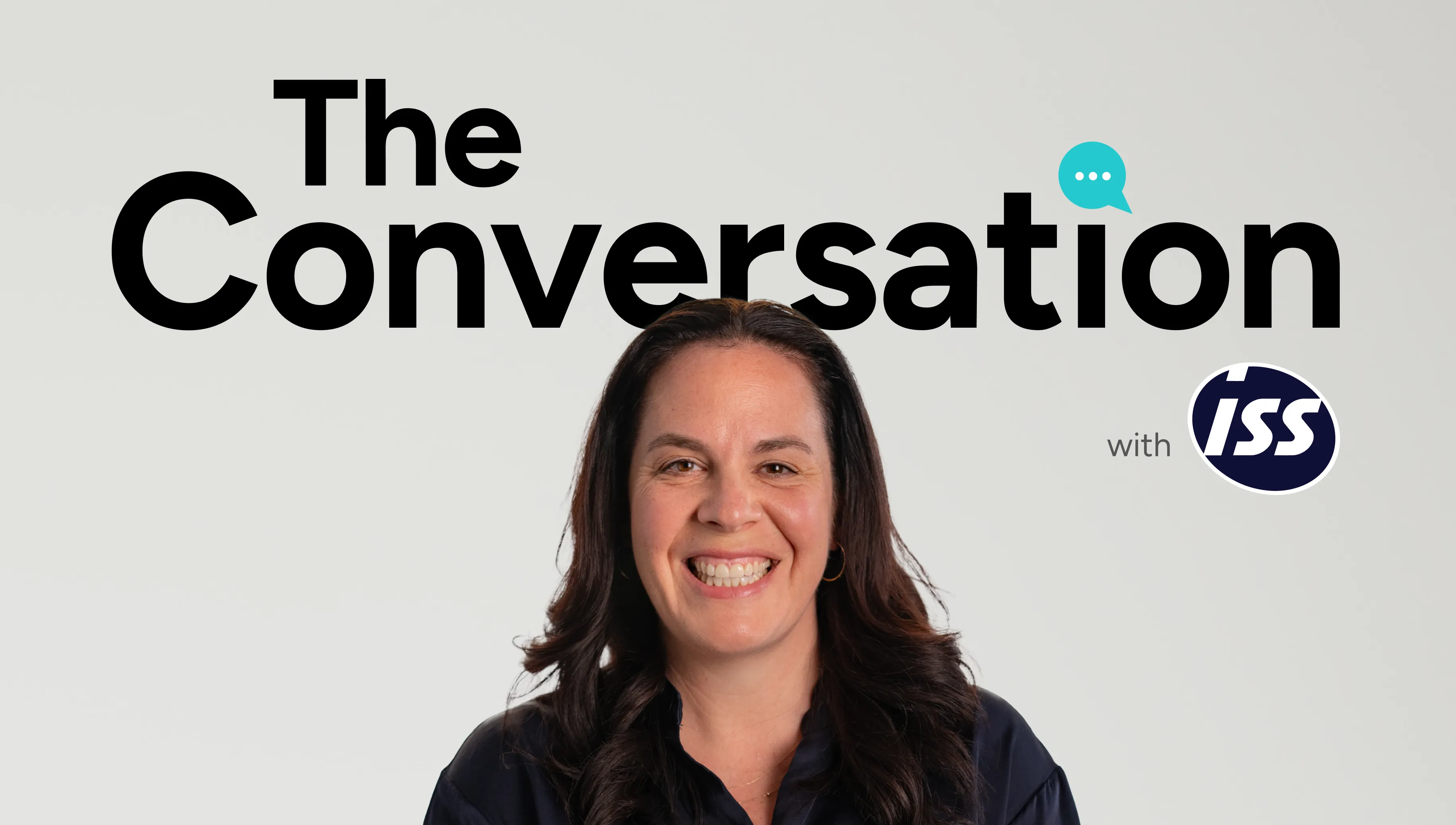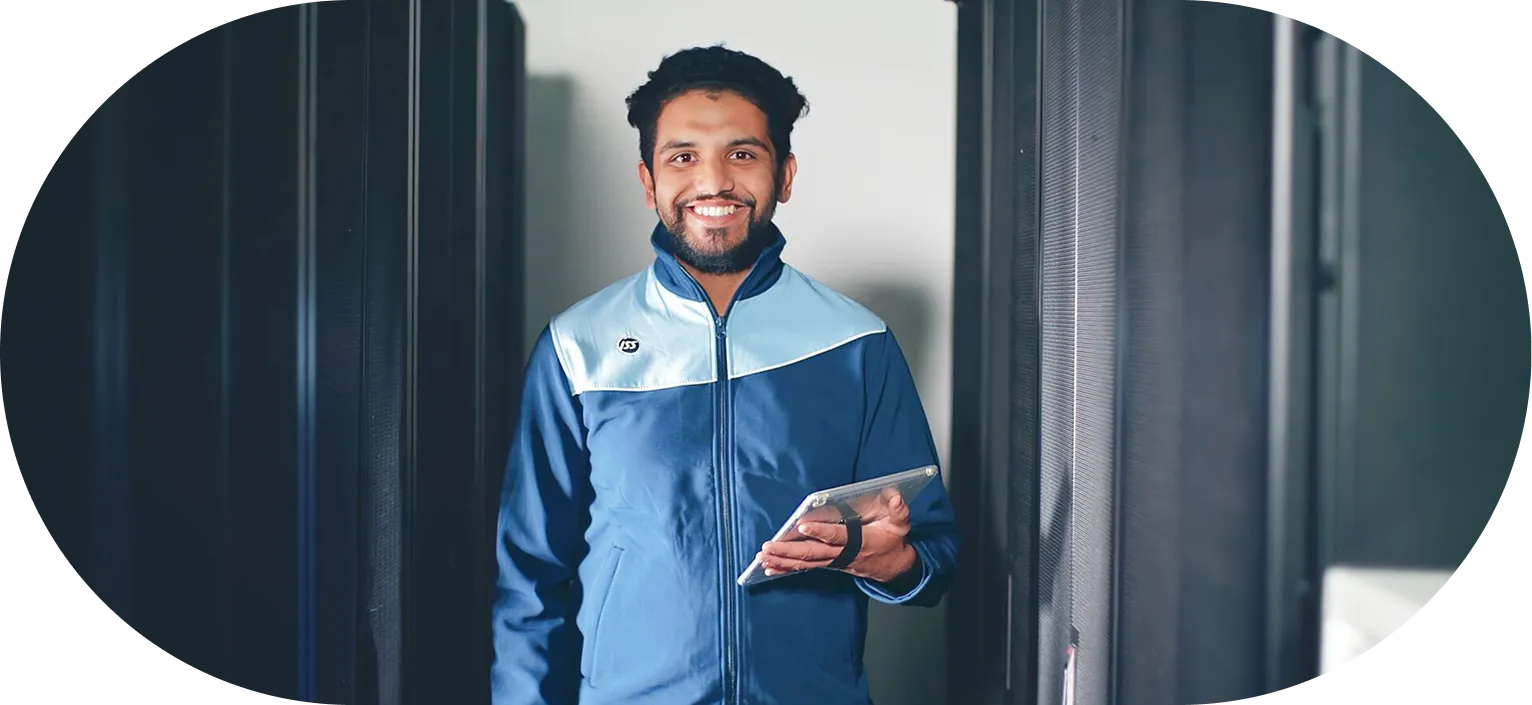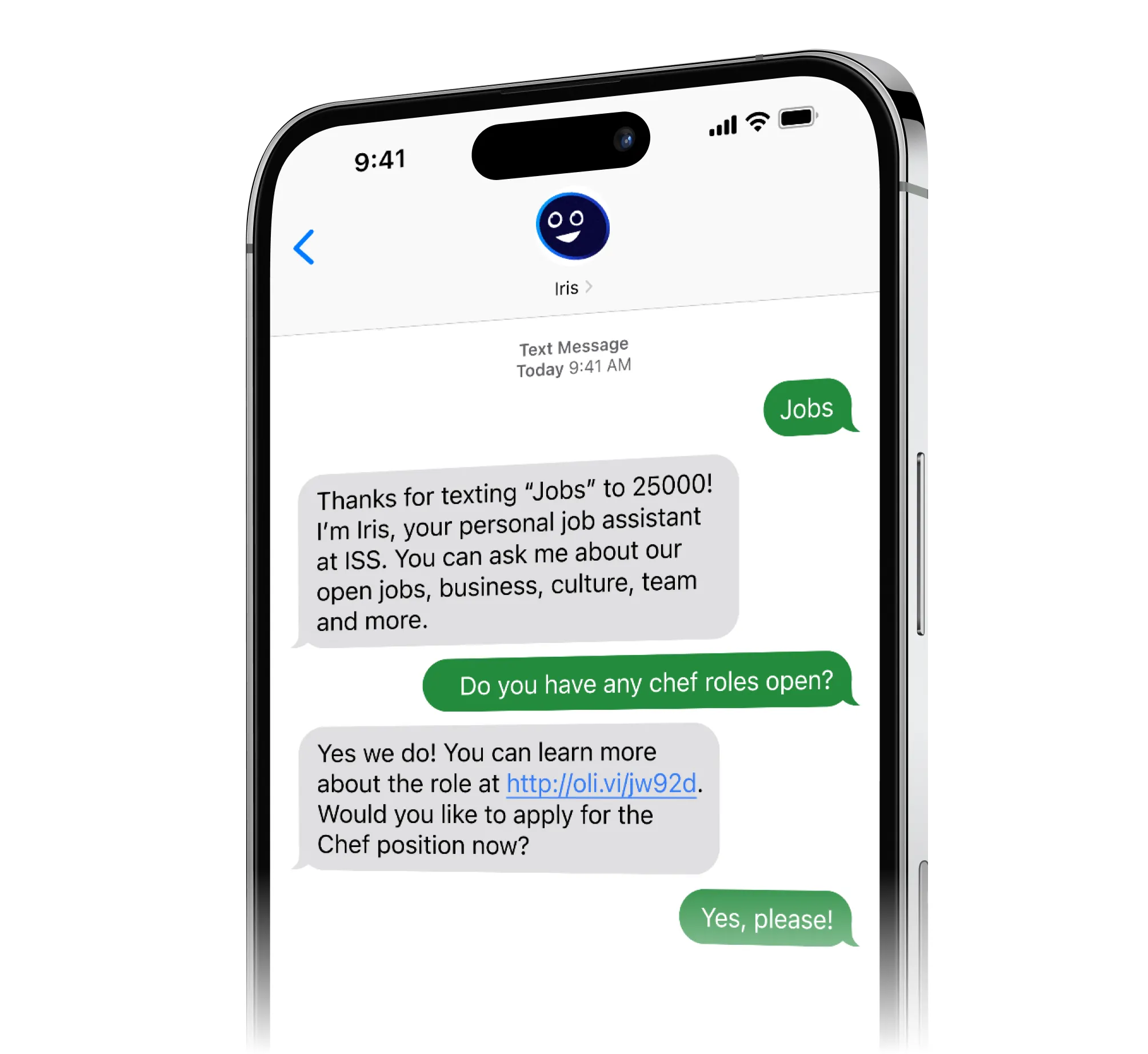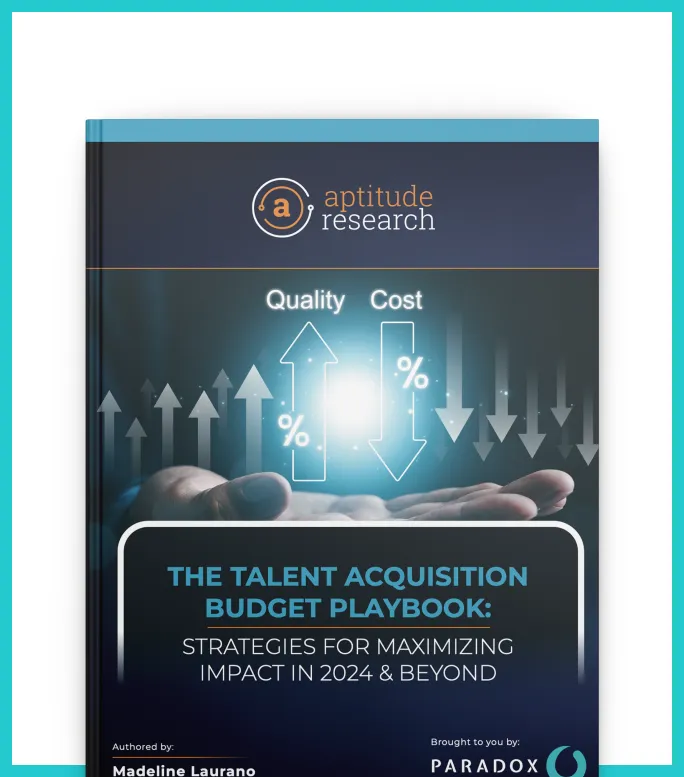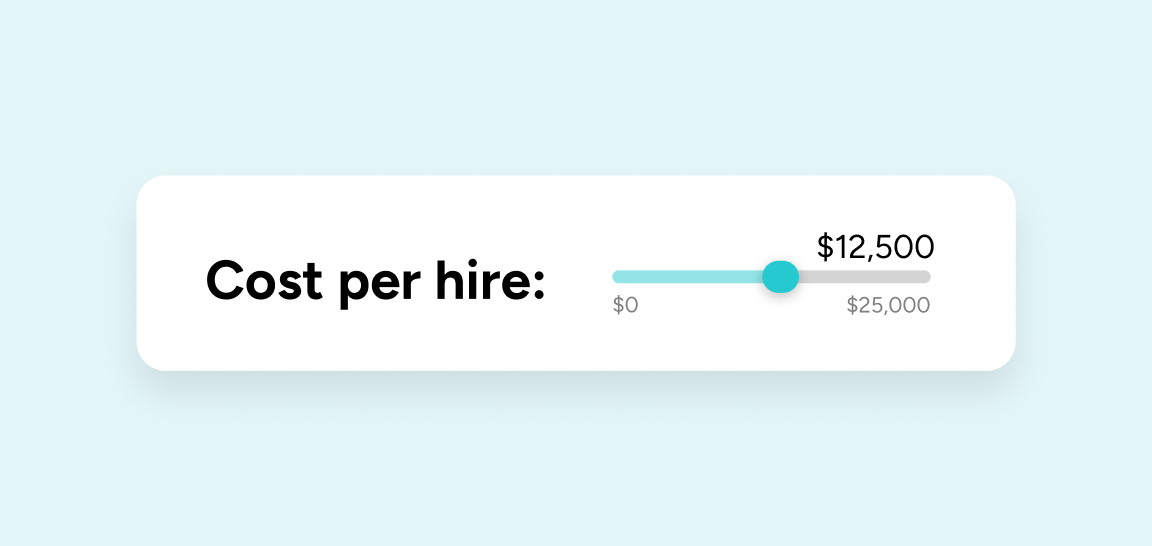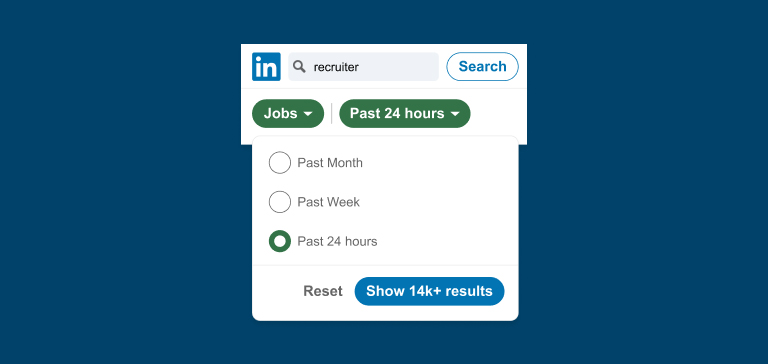If you’re advocating for technology alone in your hiring process, you’ve started off on the wrong foot.
At least, that’s what ISS’s Chief Information Officer, Alice Fournier, thinks. Her role at the service industry giant gives her unique insight into purchasing new tech upgrades — and why so many companies get it wrong. We recently sat down with Alice to see how she believes a company should go about building a business case for new tech. Enjoy.
Erik Schmidt: Can you explain the relationship between having the right systems in place and the employee experience?
Alice Fournier: People need phones. They need computers. They need to be paid and have access to their benefits. There are a lot of systems that a company needs to put into place to make sure their employees aren’t just satisfied, but ultimately productive. If you don't get the employee journey right from a systems perspective, your employees can feel really disappointed about their work. You can extrapolate that line of thinking towards candidates, too. All of the touchpoints of your recruiting process need to be working together in harmony or candidates aren’t going to apply. You need to make sure that every step of the process engages them with an experience that they’re expecting and they’re desiring.
The issue, especially at a large company like ISS, is that getting the right systems in place gets harder and harder as you scale. There are so many touchpoints your company has with its employees and its candidates — newer and legacy — all tasked with different things, and they all need to be working optimally or people will get frustrated.
ES: You touched on it, but how do you manage the systems you currently have in place with the addition of a newer system? As a CIO, what do you look for in potential tech upgrades?
AF: One of the really fun things about my job is that startups come knocking. I get so many calls from prospective companies just to pitch their product. And for me that’s helpful because I get to see who's doing what in the market, and that helps shape how we ask great questions.
When we look for technology, it first and foremost has to have a real consumer-like interface. Consumers, they’re just people — they look for technologies that feel like what they have on their phones. And so the right mobile-first approach, the right consumer type of UI, really matters when we think about bringing in new software. Of course, we also want to make sure that it's safe. We want to be sure that it's secure. We want to understand how it’s going to integrate, and if it will work seamlessly with the systems that we already have in place. And it’s also important to know what kind of partnership we’ll have with the vendor. Because the tech world evolves so quickly — it's important that we are well connected with the vendor's team so that we can evolve together for the next 20 plus years.
ES: Can you go in a little further on how the right technology can also impact the candidate experience?
AF: At ISS, we believe in creating places where people feel like they belong. And oftentimes, the people we hire don’t have high levels of technology literacy. So how do you create a sense of belonging with a technological experience for someone who may be less comfortable with technology? You make it simple. You use the “voice” of the technology to make your candidates feel comfortable, while keeping everything clear as you plainly walk through each step of the process with each candidate. If you do that, your candidates won't feel marginalized because they don’t understand, they’ll feel like they belong. It won’t be a situation where someone is trying to solve the technology; they’re just applying for a job.
At ISS, our application is really quick, easy, and entirely on mobile. It was a seamless vision from the start that I think we’ve delivered on. What that means is our candidates are able to go through the application process in the exact same experience they’re used to in their daily lives — we’re not asking them to do anything new or confusing. It’s all just texting.
ES: What advice would you give someone who is having trouble building the case for adding AI to their tech stack?
AF: Well, I would never advocate for technology. Technologies always evolve, right? So if you’re advocating for technology alone, you’re starting in the wrong spot. Instead, make the case for what the experience you want to deliver is. Because people base their expectations on experiences, not on technology. We’ve seen it happen time and time again. When a new advancement happens in the consumer world that creates better experiences, there is a very quick expectation that the same advancement will be available within the workspace. So for an organization that is still operating on these legacy systems, I believe there is a case that your employees and candidates will simply find places to work that accommodate their expectations.
Every company out there has got to think very, very deeply in how they create experiences for candidates and employees. We’re seeing AI really emerge out there in the consumer world, providing great experiences and raising those expectations. I don’t think people are going to sit through the systems that they have in years past for much longer. The world of people technology is just at the onset of solid disruption that's really needed.
ES: So what experience is AI providing to your hiring teams? Can you make a business case for that?
AF: That’s simple. If HR teams are spending a lot of time doing things that can be automated, you can easily make a business case just from that. If you automate the work, your people can do better things — things they were always better off doing. I don’t think many recruiters got into the business with the dream of scheduling interviews every day. If you take away the work they don’t like, and give them the work that they actually want to accomplish, they won’t just do the work. They’ll do a better job too. So in the end, the recruiters are happier, the company gets more efficient, and that drives you to make even better decisions going forward. That’s the business case right there.


